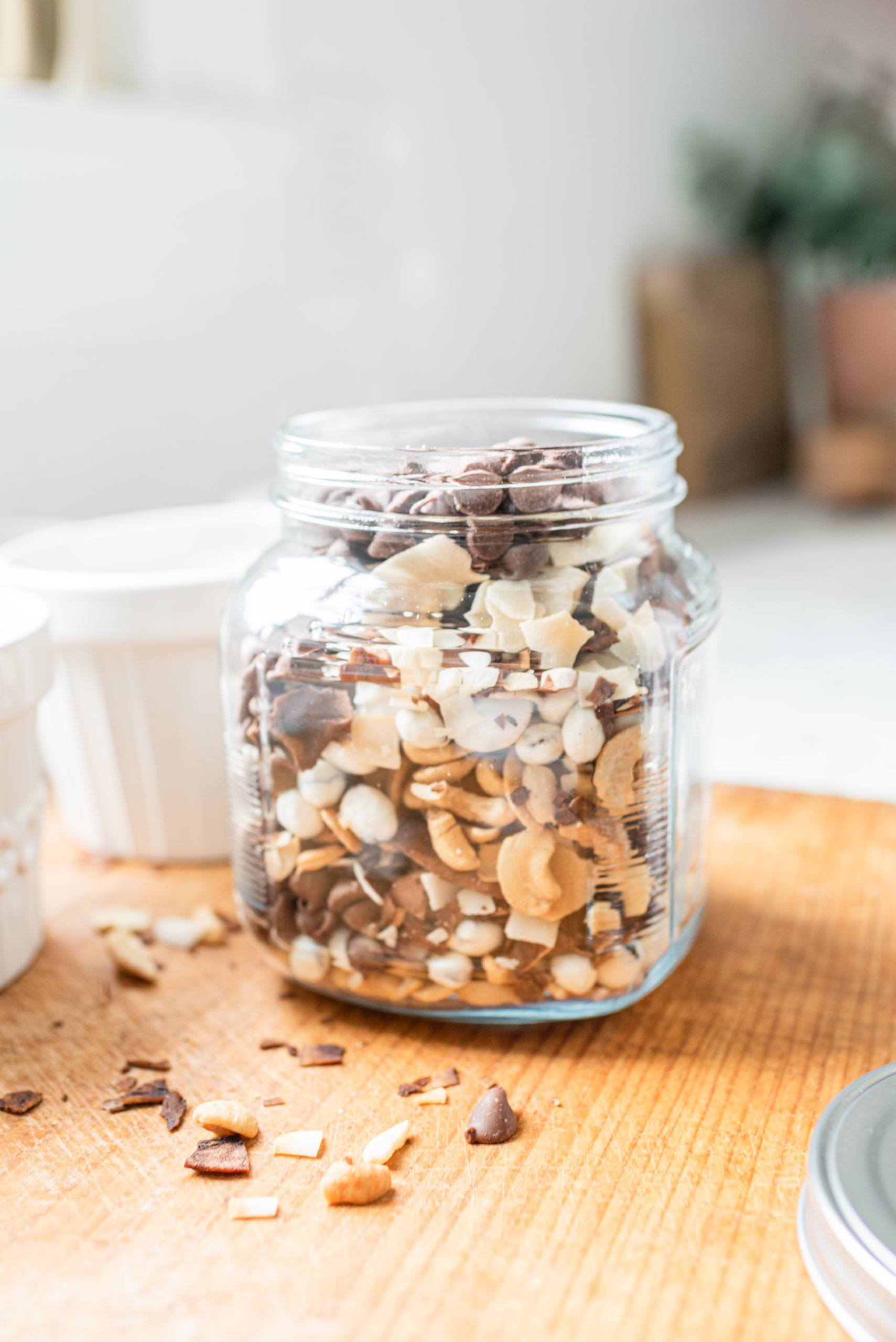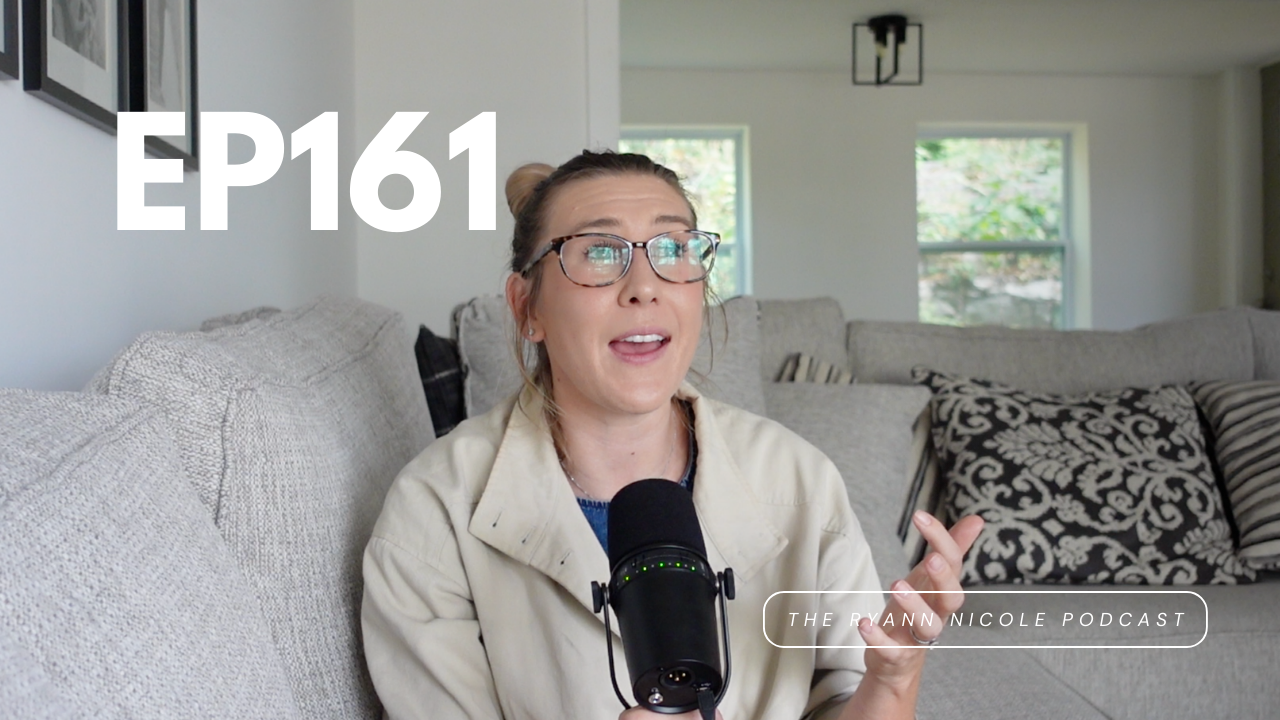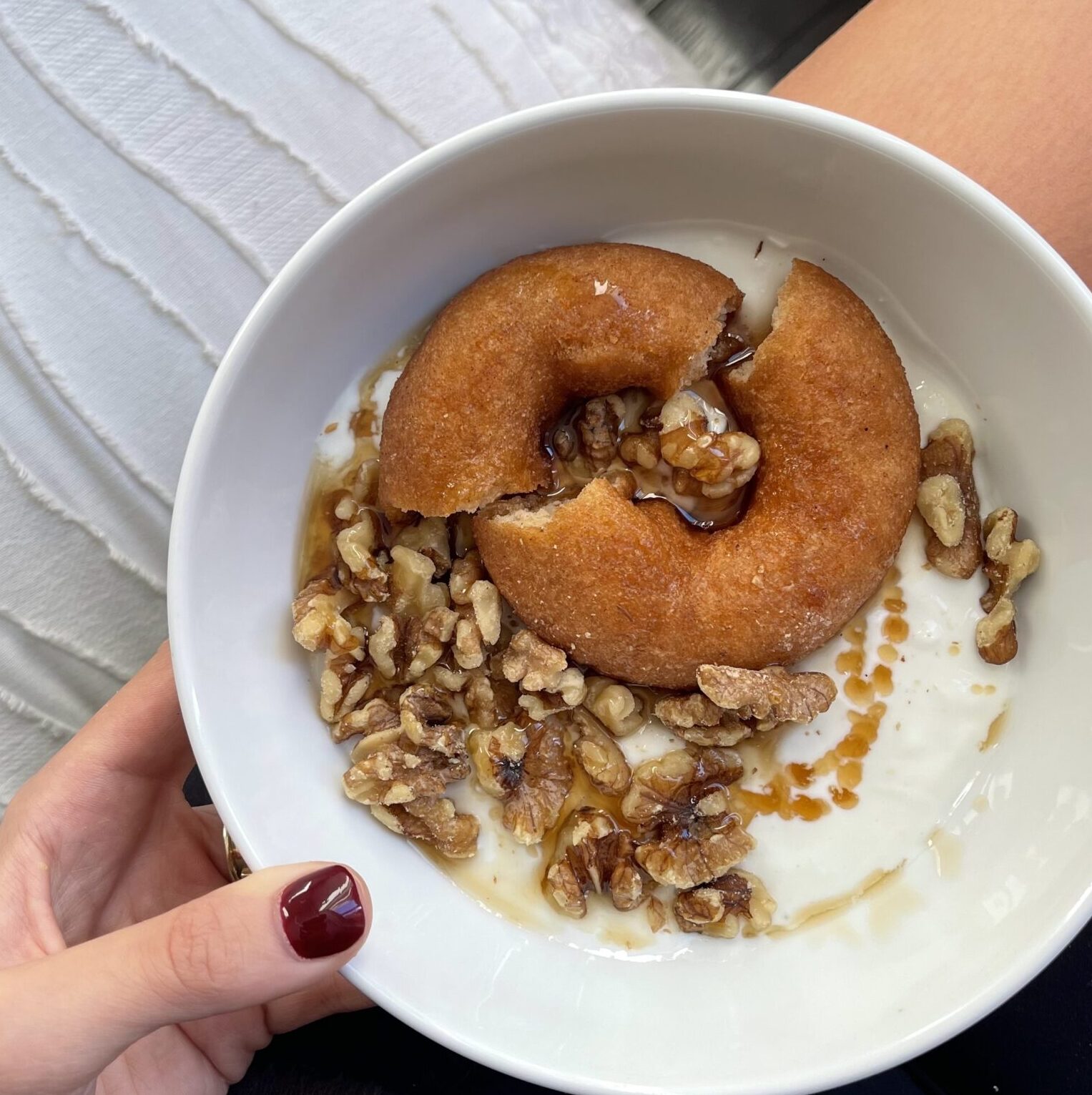Craving Control: Unlock the Secrets to Stop Snacking All the Time
January 30, 2023

Hey There, I'm Ryann Nicole.
I’m a recovered binge eater who changed the story from something that happened to me to something that happened for me. Now, I’m a licensed therapist teaching you to do the same.
My mission? To help you ditch food stress and live your life with mental peace and freedom every single day!
We’ve all had those days when we can’t seem to stop snacking. It starts as an occasional indulgence, but somehow it becomes an everyday habit. Before you know it, you’re searching for answers on Google, desperately asking, “how to stop snacking?!” First and foremost, there’s no need for self-judgment. It’s not about lacking willpower or being a flawed human being. Instead, it’s essential to understand that something triggers this never-ending snacking cycle. So, put on your detective hat and let’s tackle this issue by asking these five fundamental questions.
Question 1: Am I eating enough throughout the day?
Sometimes, the never-ending snacking can be your body’s way of sending a clear message: “I need more fuel!” Your hunger might be genuine, and you may not be providing your body with enough energy during your regular meals. The solution is to establish a consistent eating schedule, aiming to have meals every 3-4 hours.
Here’s why this approach works like a charm: When you space your meals reasonably throughout the day, you’re ensuring that your body receives a steady supply of nourishment. This not only stabilizes your blood sugar levels but also keeps those hunger pangs at bay. As a result, you’re less likely to find yourself mindlessly reaching for snacks, because you’ve already provided your body with the sustenance it needs.
So, rather than going on a wild snacking spree, focus on creating a structured meal plan that supports your body’s energy requirements. Remember, regular meals are your ally in taming the urge to snack endlessly. Your body will thank you for it by feeling more satisfied and less inclined to hunt for those extra snacks.
Question 2: Am I getting a balance of all nutrients?
Sometimes, that incessant urge to snack could be your body’s way of signaling a nutritional imbalance. It might be seeking a combination of nutrients to satisfy its needs fully. So, here’s the solution: start crafting snacks that offer a balanced mix of macronutrients.
Macronutrients are the big players in your diet: carbohydrates, proteins, and fats. When you combine these nutrients in your snacks, it’s like creating a harmonious symphony of flavors and satisfaction. The balance ensures your body gets a bit of everything it craves, preventing the insatiable urge to snack on one thing after another.
For example, you could pair a handful of pretzels with a spoonful of peanut butter. This snack covers your need for carbohydrates from the pretzels and proteins and fats from the peanut butter. The result? You feel genuinely satisfied and less inclined to keep snacking endlessly.
Balancing your nutrients isn’t only about curbing the snacking habit; it’s also about providing your body with the essential elements it requires for optimal function. So, the next time you reach for a snack, aim for that magical macronutrient mix, and watch how your snack cravings naturally subside.
Question 3: Am I allowing snack foods regularly?
If you find yourself in a never-ending snacking cycle, it might be because you’re not giving yourself permission to enjoy these snack foods regularly. The solution? Break free from the restrictive mindset and make these foods a more regular part of your meals.
It’s a common belief that some foods are “off-limits” or should only be indulged in occasionally. However, when you restrict yourself from enjoying certain foods, it can lead to increased cravings and, ultimately, that continuous urge to snack on them.
To overcome this, start incorporating these snack foods into your daily meals. For example, instead of viewing chips as a forbidden indulgence, add a small side of chips to your sandwich. This way, you’re allowing yourself to enjoy these foods as part of a balanced meal, removing the allure of forbidden fruit.
By integrating these foods into your regular eating routine, you’ll discover that your snacking habits become less obsessive. Your body will no longer feel the need to hoard these treats because it knows they are always within reach. This simple shift can help you regain control over your snacking and develop a healthier relationship with the foods you love.
Question 4: Am I appropriately managing my emotions?
If you find yourself constantly reaching for snacks, it might be a sign that you’re using food as a way to cope with your emotions. The solution lies in addressing and effectively managing these feelings.
Emotional eating is a common response to stress, sadness, boredom, or other emotional triggers. When emotions become overwhelming, some people turn to food as a source of comfort or distraction. While this can provide temporary relief, it often leads to a cycle of excessive snacking without addressing the root causes of those emotions.
To combat emotional eating, it’s essential to work on understanding and regulating your feelings. Start by identifying your emotional triggers and finding alternative ways to deal with them. This might involve practicing mindfulness, engaging in physical activity, journaling, or seeking support from friends or a mental health professional.
Developing healthy coping mechanisms for your emotions will not only help you reduce excessive snacking but also improve your overall well-being. By addressing the emotional aspects of your eating habits, you can break free from the cycle of using food as a temporary solution and build more effective ways to manage your feelings.
Question 5: Do I have 3 filling and satisfying meals daily?
Endless snacking may occur when you’re not having nourishing, balanced meals throughout the day. To address this issue, it’s essential to focus on creating meals that genuinely satisfy your hunger.
Here’s how to ensure you have three filling and satisfying meals daily:
- Balanced Plate: When planning your meals, aim for a well-balanced plate that includes a variety of food groups. Incorporate lean proteins, whole grains, healthy fats, and plenty of vegetables. This balance provides the nutrients your body needs and helps you stay full for longer.
- Mindful Eating: Practice mindful eating during your meals. Slow down, savor each bite, and listen to your body’s hunger cues. Eating mindfully helps you recognize when you’re satisfied, reducing the urge to snack unnecessarily.
- Meal Planning: Plan your meals ahead of time to ensure they are both nutritionally complete and enjoyable. This eliminates the need for impromptu snacking due to lack of meal preparation.
Remember, the goal is to have meals that leave you feeling content and nourished. By focusing on the quality and composition of your main meals, you can minimize the desire to snack excessively and create a healthier relationship with food.
The quest to figure out how to stop snacking can take many forms, but the key to success lies in simplicity. Rather than self-blame or diving into the endless depths of Google searches, consider these five fundamental questions. Perhaps it’s a matter of ensuring your meals are truly satisfying. Maybe it’s about recognizing and managing your emotional triggers. Or it could be as simple as re-establishing a genuine connection with your body’s cues. Instead of berating yourself for continuous snacking, embark on this journey of self-discovery, addressing the root causes and embracing new, healthier approaches to your relationship with food. Your path to balanced, mindful eating begins with understanding, compassion, and a commitment to positive change.
Must Read Books To Improve Your Relationship With Food
Just so you know, I do review everything I recommend. When you buy through links on this page, we may earn a commission.
Intuitive Eating by Elise Resch and Evelyn Tribole
When it was first published, Intuitive Eating was revolutionary in its anti-dieting approach. The authors, both prominent health professionals in the field of nutrition and eating disorders, urge readers to embrace the goal of developing body positivity and reconnecting with one’s internal wisdom about eating―to unlearn everything they were taught about calorie-counting and other aspects of diet culture and to learn about the harm of weight stigma.
Health At Every Size by Lindo Bacon
Fat isn’t the problem. Dieting is the problem. A society that rejects anyone whose body shape or size doesn’t match an impossible ideal is the problem. A medical establishment that equates “thin” with “healthy” is the problem. The solution? Health at Every Size. Tune in to your body’s expert guidance. Find the joy in movement. Eat what you want, when you want, choosing pleasurable foods that help you to feel good. You too can feel great in your body right now—and Health at Every Size will show you how.
Anti-Diet by Christy Harrison
In Anti-Diet, Christy Harrison takes on diet culture and the multi-billion-dollar industries that profit from it, exposing all the ways it robs people of their time, money, health, and happiness. It will turn what you think you know about health and wellness upside down, as Harrison explores the history of diet culture, how it’s infiltrated the health and wellness world, how to recognize it in all its sneaky forms, and how letting go of efforts to lose weight or eat “perfectly” actually helps to improve people’s health—no matter their size. Drawing on scientific research, personal experience, and stories from patients and colleagues, Anti-Diet provides a radical alternative to diet culture, and helps readers reclaim their bodies, minds, and lives so they can focus on the things that truly matter.
check out the pod
Ways I Can Support You
01 Coaching
Intimate group coaching to break free from binge eating
02 podcast
Real talk on food, mindset shifts, motherhood, and finding peace.
03 support group
A safe space to connect with others on the same journey.
04 free coaching
Have real conversations and hear others share their struggles.
Ryann Nicole
Licensed Therapist, Certified Nutritionist, and Virtual Wellness Coach
Ryann is a licensed therapist and virtual wellness coach who has assisted individuals worldwide in establishing a healthier relationship with food and their bodies.
Are You Ready to Heal Your Relationship With Food?
I understand—it can be overwhelming to figure out where to begin. Let's simplify things and have you start right here:
Why Am I Overeating?
First Steps To Stop Binge Eating
The Ryann Nicole
Podcast
FREE QUIZ
FREE GUIDE
Podcast
the food freedom lab podcast



